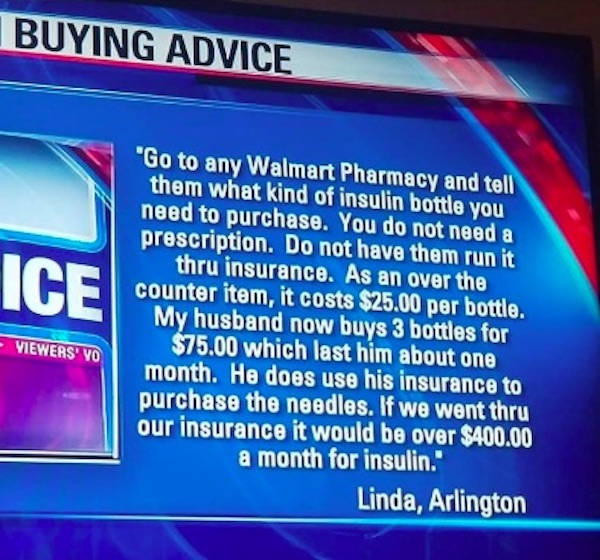Mbaker
Well-Known Member
- Messages
- 4,340
- Location
- Essex
- Type of diabetes
- Treatment type
- Diet only
- Dislikes
- Available fast foods in Supermarkets
Following the appalling death by DKA, of the gentleman in the States who could not afford insulin, which had gone from $1000.00 to $1300.00, it is right to highlight the unbelievable situation happening right now in the 5th richest economy in the world.
Type 1's are in my view treated bizarrely in this great country. I feel ordinary citizens would cringe if they understood the unacceptable scenarios. I heard first hand at the APPG on Diabetes what Type 1's have to go through....I thought I had a bit of understanding. How about up to 30 blood tests a day, facing the disappointment of not getting a Libre to better manage their condition (only 20% are said to successfully meet the criteria - are you ....
joking, this should be 100% of those who would like a unit (or similar, with minimal hoops to jump through). I think if many Type 2's were supported properly, eye issues, amputations and other complications could be avoided - just one way of releasing some money to pay for Libres or equivalents. I heard from several Type 1's that if you are somewhat managed, say a HbA1c of 7.5 % (can't remember the exact figures) then there was little chance of getting a Libre, with the most direct way being an imminent pregnancy - something is very rotten here. CGM's are another matter; apparently they were invented in the UK, so can someone explain why Germany has a higher Type 1 % that have them.
Anyway here's the link to the meeting summary. I asked the "Abbott man if they would consider making the Libre a calibration unit for those who get low readings, and an option for either sticky adhesion or wider adhesive:
https://mailchi.mp/1cc65fcebfe7/report-on-research-into-type-1-diabetes?e=f88397a47f
Type 1's are in my view treated bizarrely in this great country. I feel ordinary citizens would cringe if they understood the unacceptable scenarios. I heard first hand at the APPG on Diabetes what Type 1's have to go through....I thought I had a bit of understanding. How about up to 30 blood tests a day, facing the disappointment of not getting a Libre to better manage their condition (only 20% are said to successfully meet the criteria - are you ....
joking, this should be 100% of those who would like a unit (or similar, with minimal hoops to jump through). I think if many Type 2's were supported properly, eye issues, amputations and other complications could be avoided - just one way of releasing some money to pay for Libres or equivalents. I heard from several Type 1's that if you are somewhat managed, say a HbA1c of 7.5 % (can't remember the exact figures) then there was little chance of getting a Libre, with the most direct way being an imminent pregnancy - something is very rotten here. CGM's are another matter; apparently they were invented in the UK, so can someone explain why Germany has a higher Type 1 % that have them.
Anyway here's the link to the meeting summary. I asked the "Abbott man if they would consider making the Libre a calibration unit for those who get low readings, and an option for either sticky adhesion or wider adhesive:
https://mailchi.mp/1cc65fcebfe7/report-on-research-into-type-1-diabetes?e=f88397a47f

